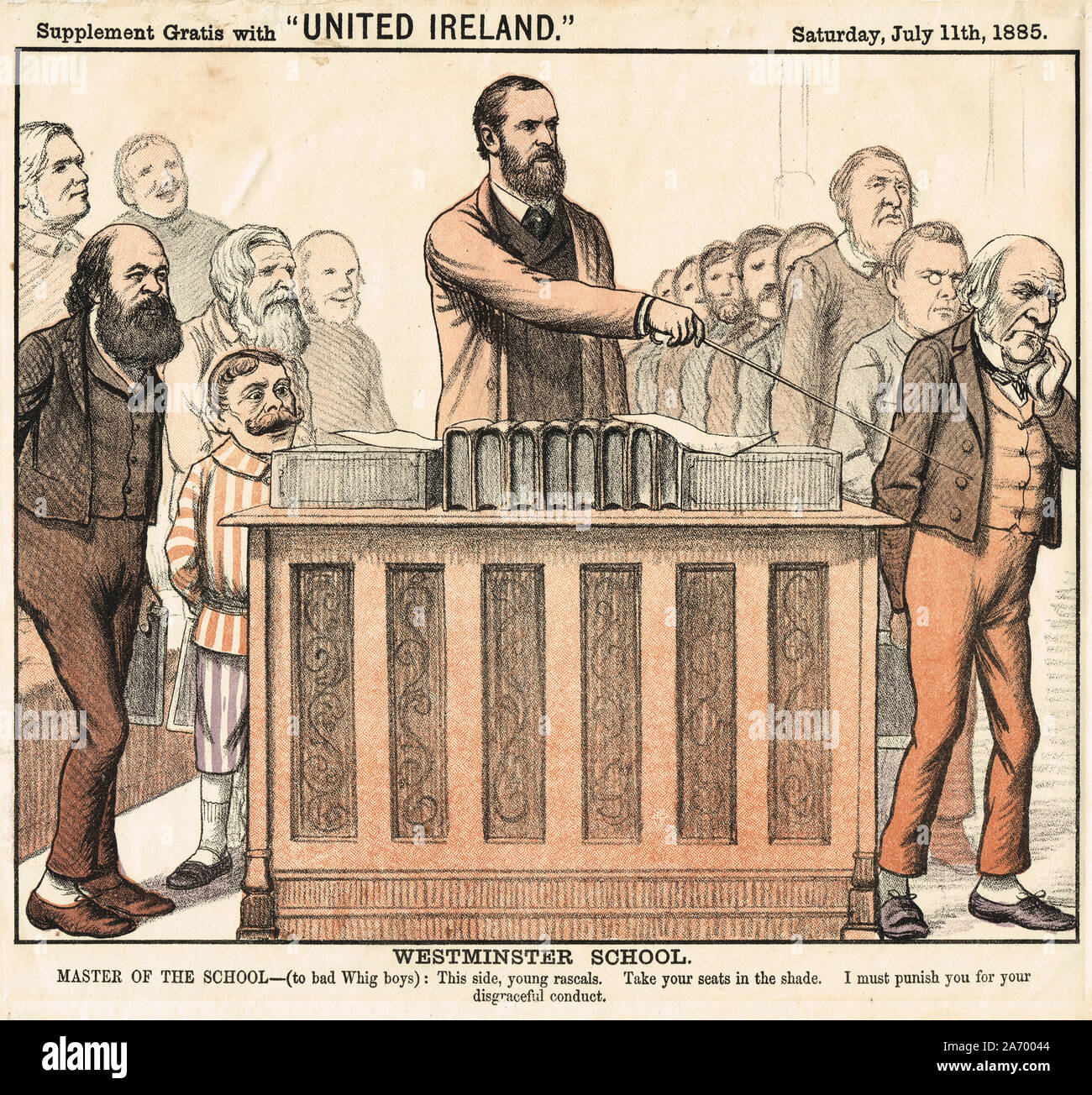Charles Stewart Parnell cartoon from the United Ireland Newspaper supplement of 11 July 1885 entitled Westminster school. Showing Parnell as a teacher punishing Gladstone and his party for their failure to support home rule, leading to the hung parliament of 1885 where the Irish Parliamentary party held the balance of power.

Image details
Contributor:
Historical Images Archive / Alamy Stock PhotoImage ID:
2A70044File size:
107.3 MB (11 MB Compressed download)Releases:
Model - no | Property - noDo I need a release?Dimensions:
6336 x 5920 px | 53.6 x 50.1 cm | 21.1 x 19.7 inches | 300dpiDate taken:
1885More information:
This image could have imperfections as it’s either historical or reportage.
The hung parliament of 1885 saw him hold the balance of power between William Gladstone's Liberal Party and Lord Salisbury's Conservative Party. Parnell at first supported a Conservative government – they were still the smaller party after the elections – but after renewed agrarian distress arose when agricultural prices fell and unrest developed during 1885, Lord Salisbury's Conservative government announced coercion measures in January 1886. Parnell switched his support to the Liberals.[4] The prospects shocked Unionists. The Orange Order, revived in the 1880s to oppose the Land League, now openly opposed Home Rule. On 20 January, the Irish Unionist Party was established in Dublin.[22] By 28 January, Salisbury's government had resigned. The Liberal Party regained power on 1 February, their leader Gladstone – influenced by the status of Norway, which at the time was self-governing but under the Swedish Crown – moving towards Home Rule, which Gladstone's son Herbert revealed publicly under what became known as the "flying of the Hawarden Kite". The third Gladstone administration paved the way towards the generous response to Irish demands that the new Prime Minister had promised, [23] but was unable to obtain the support of several key players in his own party. Lord Hartington (who had been Liberal leader in the late 1870s and was still the most likely alternative leader) refused to serve at all, while Joseph Chamberlain briefly held office then resigned when he saw the terms of the proposed bill.